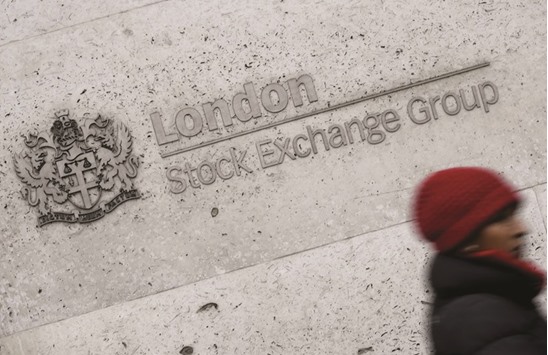The pound slumped yesterday on reports British Prime Minister Theresa May was ready to take the country out of the European Union in a so-called “hard Brexit”.
Sterling’s weakness sent London’s FTSE 100 index to a fresh record high, although the index later fell back and closed with a slight loss, ending a record 14-session winning streak.
“The main action today has been on the currency market with the pound sliding to its lowest levels since the October flash crash, below 1.2000 against the US dollar, as markets price in further uncertainty ahead of today’s scheduled speech by UK Prime Minister Theresa May about how the UK intends to conduct its Brexit negotiations,” said Michael Hewson, chief market analyst at CMC markets UK.
Sterling yesterday plunged to $1.1986, its lowest level since October’s “flash crash” that sent it to a 31-year low of $1.1841.
The pound has fallen sharply since Britain voted in June to exit the European Union, pushing up share prices of multi-nationals on the FTSE index of 100 firms including the likes of energy giants Shell and BP.
“Weakness in sterling has been the primary means by which the FTSE 100 has notched up its record-breaking run,” said Chris Beauchamp, chief market analyst at IG trading group, after the index hit a record high at 7,354.14 points following a string of peaks over the past few weeks.
It was down 0.15% to 7,327.13 points at the closing bell, snapping a winning streak that began before the New Year.
In the eurozone yesterday, Frankfurt’s DAX 30 index shed 0.6% and the Paris CAC 40 fell 0.8%.
US markets were closed for Martin Luther King, Jr Day.
May yesterday won endorsement from Trump over her Brexit course, with him saying that Britain leaving the EU would “end up as a great thing”, adding in an interview with The Times newspaper that he would work for a trade deal with post-Brexit Britain “quickly and done properly”.
Trump’s comments did little to reassure investors, however, following reports in British media over the weekend that May is planning to announce a hard line on Brexit in a major speech today.
“Wind the clock back twelve months and it was concerns about the Chinese economy that was prompting a significant period of volatility in both currency markets, and stock markets,” analyst Hewson added yesterday.
“As we head into 2017, while concerns about the Chinese economy have taken a back seat, it is Brexit as well as the impeding inauguration of Donald Trump... that is currently front of mind, in what looks set to be another choppy week for financial markets.”

A woman walks past the London Stock Exchange building. FTSE 100 index was down 0.15% to 7,327.13 points at the closing bell yesterday.
